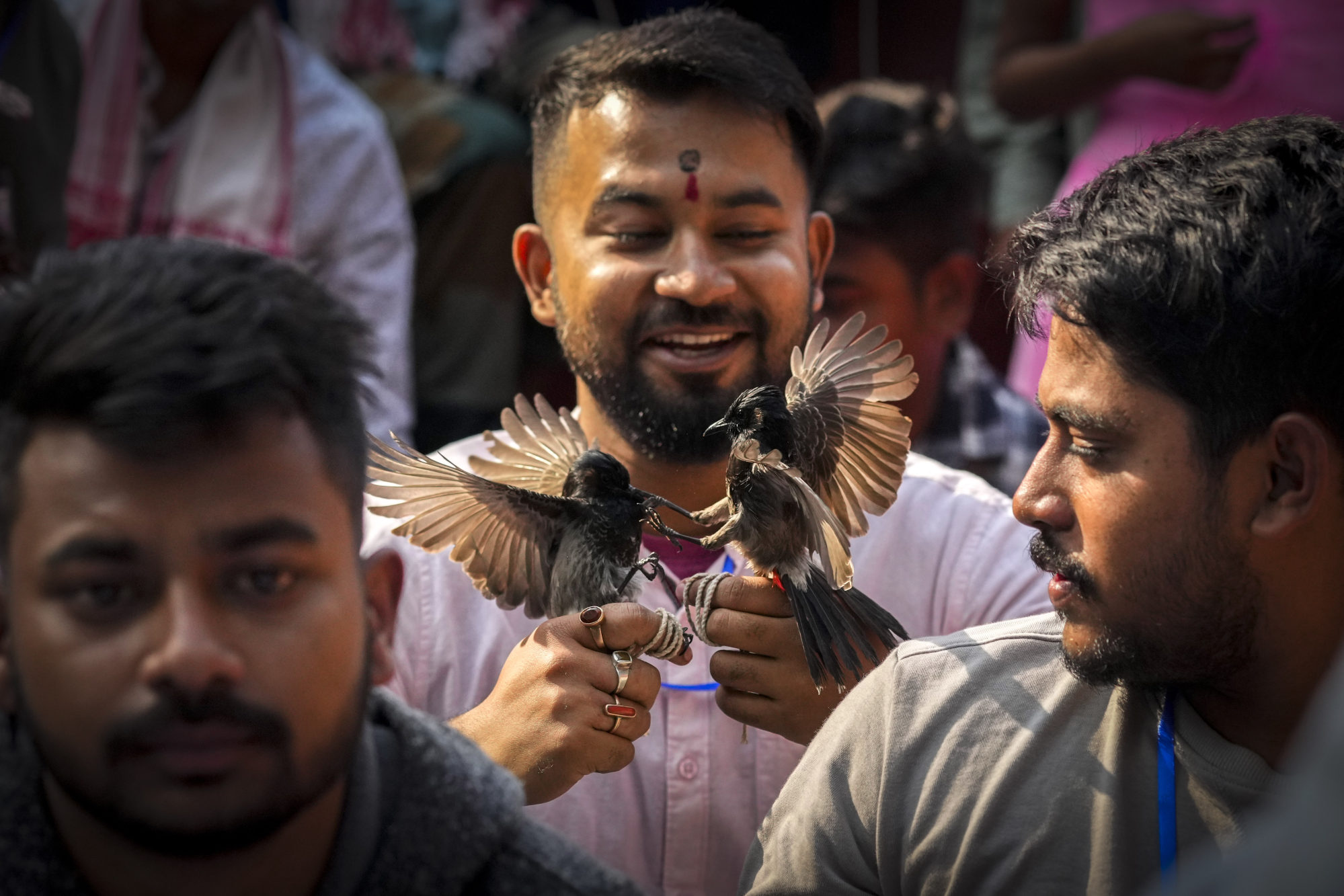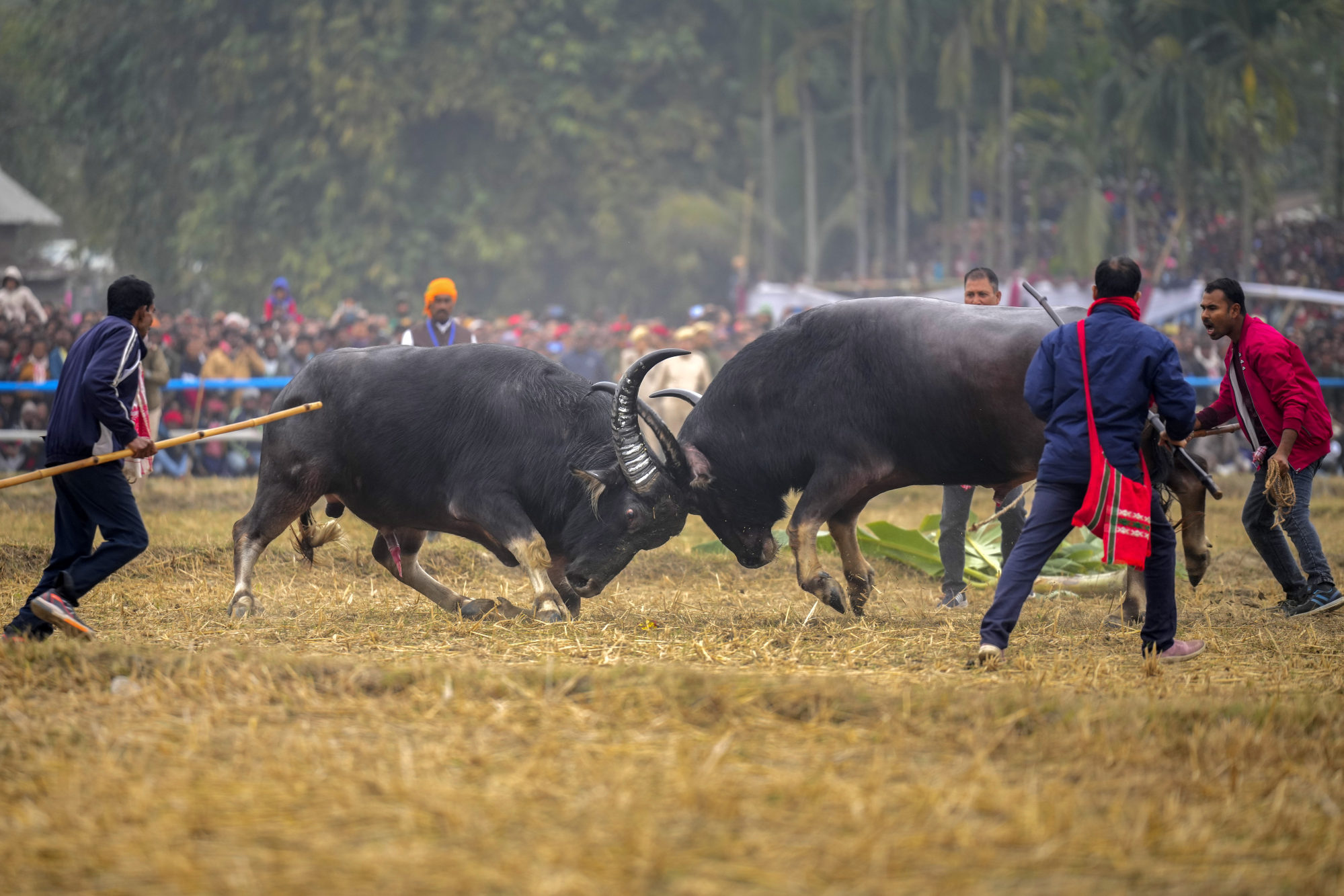‘Primitive’: India activists criticise reversal of ban on bird and buffalo fights
[ad_1]
The tiny birds entered the ring as nearly 3,000 spectators applauded, some standing on trucks for a better view, while others clung to branches in trees.
After a nine-year hiatus, bird and buffalo fights are back at festivals in India’s northeast after the Supreme Court ended a ban on the tradition.
Despite opposition from wildlife activists, animal fights were organised last week during Assam’s Magh Bihu harvest festival, under a new state law that promises to make the contests safe for the animals.

At a temple on the outskirts of the state capital, the bulbuls – songbirds about the size of a blue jay – fluttered up in the air and swooped down on their opponents, their owners holding a string tied around their legs. Some spectators made bets with each other.
Three judges watch the birds’ technique, and give the winner’s owner with a cash prize of 3,000 rupees (US$36).
Dijen Bharali, an organiser, claimed the fights were safe for the bulbuls. “The small birds get tired after the fight that lasts around five to 10 minutes each, but they do not get injured,” he said. He said 50 families brought two birds each to the day-long festival.
India’s Supreme Court stopped fights like these in 2014, along with other sports like bull cart races, under the country’s 1960 Prevention of Cruelty to Animals Act. But last year, it signed off on new laws made by some state governments that revived the custom while putting rules in place to protect the animals.
Philippine cockfights grow in popularity, despite efforts to shut down sport
Philippine cockfights grow in popularity, despite efforts to shut down sport
Popular tradition dates Assam bird fights to the 18th century, when a king saw two wild birds fighting. It’s a popular pastime at the January harvest festival, along with bonfires, feasts and other games.
Local people catch the wild birds ahead of the festival season, train them, and then release them after the game is over.
Mubina Akhtar, an animal-rights activist, called the resumption of the fights a step backwards.
“This is the age of AI. We are going for something in the name of tradition that I feel is so primitive or medieval. It’s a kind of torture for the animals as some of them get killed or injured,” said Akhtar.

Assam’s law requires that organisers provide food and water to the birds at the site of the fight. At the end of the game, the birds must be set free in good health. If organisers fail to follow the rules, the events will be banned for five years.
However, Akhtar regretted that the fights encourage people to catch the birds in the wild and force them to fight. “We have to conserve species which are declining or disappearing,” she said.
The red-vented bulbul is not currently listed as a threatened or endangered species.

Buffalo fights have a shorter history in Assam, but they draw bigger crowds, with up to 10,000 people gathering in stadiums in Morigaon, Nagaon and Sivasagar districts, places with a 25-year history with the sport.
As required by the new laws, veterinary teams watched the animals locking horns, ready to respond to any medical emergency. The state government also banned trainers from giving the buffaloes opium or other performance-enhancing drugs.
Bharali said some buffaloes were wounded and lost blood in the fights but organisers are taking steps to reduce injuries.
People for the Ethical Treatment of Animals, an animal rights organisation, urged the state government to urgently stop buffalo and bird fights in the state.
In a letter to the state’s top elected official, Peta argued that the fights violate the 1960 law.
[ad_2]
Source link




